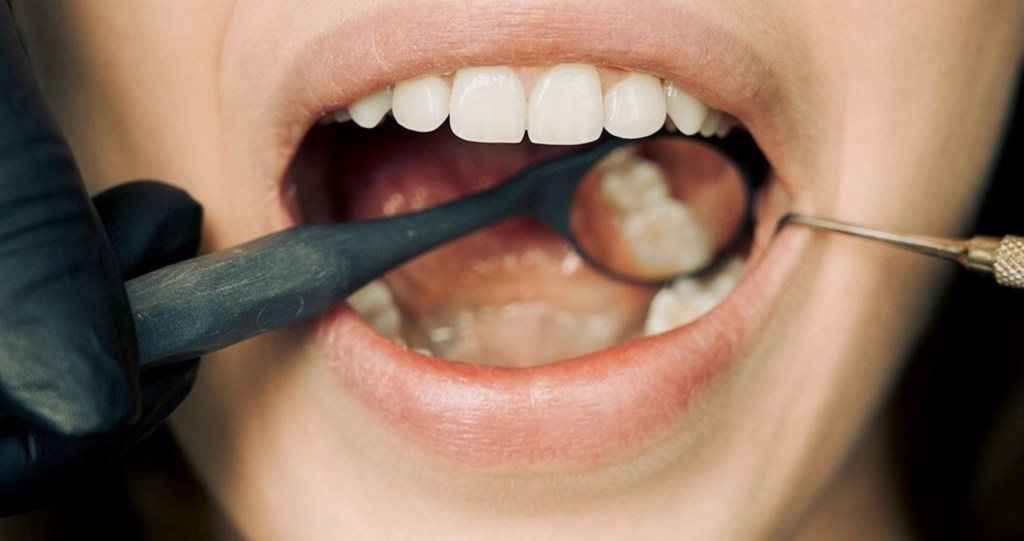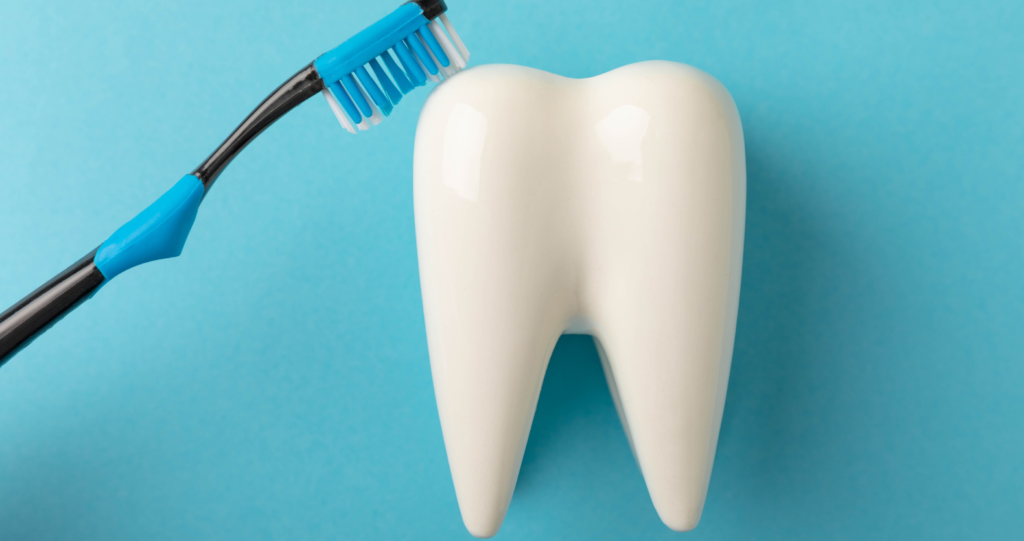
How To Remove Plaque From False Teeth
Taking care of your dentures is essential for your oral health and comfort. One of the most common problems denture users experience is plaque build-up, which can lead to bad breath, gum irritation, and potentially more serious oral health issues. Regular plaque removal prevents these issues from arising and keeps your false teeth looking and feeling great. In this blog, we will cover how to clean your dentures effectively, how to remove plaque from false teeth, and how to avoid plaque accumulation.
How To Remove Plaque From False Teeth
Plaque can be removed by properly cleaning them if done consistently. Dentures can become coated with plaque just like natural teeth, and it’s essential to treat it right away so it doesn’t develop into hardened tartar, which is more difficult to remove. So, without further ado, I will show you how you can clean your dentures effectively, eliminate plaque, and maintain denture hygiene.
Understanding Plaque On Dentures
An invisible, white film of debris made of bacteria, known as plaque, builds typically on your denture per day by food particles, saliva, and microbes in the mouth. If left untreated, it can build up on natural and false teeth, causing discomfort and oral hygiene problems. If plaque isn’t brushed off regularly, it can harden into tartar, a much more complex substance to remove that can lead to staining, bad smells, and even irritation of the gums.
A plaque-free denture is essential for fresh breath, gum disease prevention, and the lifespan of the denture itself. An effective cleaning routine is necessary to prevent plaque from building up and damaging false teeth.

What Is Plaque, And How Does It Form On False Teeth?
Plaque is a colorless, sticky film formed by bacteria that naturally forms on the surfaces of your dentures, just as it does on natural teeth. These are made from bits of food and saliva that combine in the mouth, providing a playground for bacteria. If plaque is not cleaned away over time, it can harden and turn into tartar, which is far more difficult to remove. On dentures, plaque leads to foul odors, discoloration, and gum irritation that can be uncomfortable and potentially infectious if cytotoxic substances develop if neglected.
This sticky film starts to build up shortly after cleaning and can coat any surface that comes into contact with food, including the teeth, gums, and roof of the mouth. We must remove plaque every day to avoid complications like gum disease, as plaque contains bacteria that cause inflammation and irritation of the soft tissues in the mouth.
Plague And Build-Up On Dentures
Tartar and plaque are both links, yet they differ in appearance and how to get rid of them. Plaque is soft, sticky, and more easily removed with regular brushing and soaking. Plaque not removed can harden over time into tartar, however. On dentures, tartar is far more persistent because it takes a stronger bond with the denture surface. This hard stuff needs a more aggressive cleaning approach, and often, the entire stuff needs professional cleaning to be removed entirely.
Difference Between Plaque And Tartar On Dentures
Knowing the difference between plaque and tartar is essential if plaque buildup is going to be prevented from mineralizing into tartar. Having a regular cleaning routine means that you will prevent plaque from building up and avoid the headache of having tartar on your dentures.
Best Methods To Remove Plaque
The key to good denture hygiene is effective plaque removal. There are a few different ways you can keep your dentures clean and plaque-free, and we’re going to go into detail to help keep your false teeth in tip-top shape.
Brushing Techniques
One of the best daily plaque removal methods is brushing your dentures. Plaque builds up fairly quickly, so it’s essential to brush your dentures at least once or twice a day to keep them clean.
Choosing The Right Soft-Bristle Brush
Make sure you use a soft-bristle brush that is designed for dentures when brushing your dentures. Firm bristles will scratch the surface of your false teeth, which will result in more plaque build-up or discomfort. Use a soft brush to gently clear away plaque without damaging your dentures, allowing them to stay in tip-top shape.
Best Denture Cleaning Pastes To Use
Regular toothpaste is abrasive for dentures and will wear them down unnecessarily. Instead, use specialized denture cleaning pastes formulated to remove plaque but gentle enough not to scratch the surface. These pastes aid in a thorough yet gentle cleaning of your dentures.
Soaking Dentures For Deep Cleaning
Soaking dentures overnight allows water to penetrate in between that plaque and bacteria that brushing isn’t able to remove, giving you a deep clean and keeping your dentures in better condition longer.
Importance Of Soaking Overnight
Soaking dentures overnight enables the cleaning solution to dissolve stubborn plaque and bacteria. This technique is especially beneficial for denture wearers who have experienced their dentures feeling gritty or stained after hours of wear. Soaking helps rejuvenate the dentures and allows delicate cleaning over all areas.
Recommended Cleaning Solutions (Denture Tablets, Vinegar)
You can also use other products for soaking dentures, like denture cleaning tablets. Such tablets dissolve in water and assist in the removal of plaque and bacteria from the surface. You can also wash your dentures in a water and white vinegar solution — a natural antibacterial agent that also can help dissolve plaque buildup. You should, however, rinse your denture thoroughly after soaking so that you won’t have the taste of vinegar lingering on.
Natural Remedies For Plaque Removal
If you want to try something more natural, a few home remedies for plaque removal on dentures can be quite helpful. These remedies can be equally effective as the product and often cheaper.
Vinegar And Baking Soda Solution
There are plenty of natural cleaning solutions available, but one example that could work well is a mixture of vinegar and baking soda. This easy solution can assist in breaking down plaque buildup and requires no strong chemicals.
How To Make And Use It Safely
How to make the solution: Combine equal parts baking soda and vinegar to create a paste. Gently scrub your dentures with a soft brush and the paste, focusing on spots that can trap plaque deposition. Baking soda’s slightly abrasive nature, paired with vinegar’s acidity, lifts plaque off the teeth without damaging the denture’s surface.

Hydrogen Peroxide Rinse
One might look to hydrogen peroxide, an established disinfectant that also can help loosen plaque and bacteria on dentures.
Plaque Removal efficiency
Using a hydrogen peroxide rinse is very effective in efficiently removing plaque buildup. Mix one part hydrogen peroxide with one part water and soak your dentures in the mixture for 10 to 15 minutes. After washing, use a soft-bristle brush to brush the dentures and remove any loosened plaque. This technique not only helps eliminate plaque but also kills bacteria that can cause bad breath or gum irritation.
Preventing Future Plaque Buildup
Stopping plaque accumulation is crucial to maintaining dentures and keeping your mouth healthy and balanced. Regular maintenance is needed to prevent plaque from building up and hardening into tartar.
Daily Denture Care Routine
Plaque is best prevented with a daily denture care routine. Make sure to clean your dentures twice a day and soak them overnight. Rinse your dentures after eating to dislodge food particles that can lead to plaque buildup. Regular care will keep plaque from having a chance to build up.
Plaque-Forming Foods
Food high in sugar, stickiness, and acidity causes plaque formation on dentures. These types of foods provide an optimal breeding ground for bacteria and, ultimately, plaque. Avoid eating these foods as much as possible, and always clean your dentures after eating to prevent food particles from attaching to the surface.
Regular cleaning And Professional Maintenance
Even with good home care, regular professional cleanings are essential. Dentists or denturists can remove tartar buildup that you can’t manage at home. Regular visits will also help ensure that your dentures function optimally and that any problems are fixed before they develop into more serious issues.
Plaque is a colorless, sticky film of bacteria that builds on your dentures naturally through food particles, saliva, and bacteria in the mouth. The plaque can build up on your natural teeth and false teeth, making you uncomfortable and causing oral health issues if not cleaned properly. Plaque that isn’t removed regularly can harden into tartar, which is much more challenging to remove and can, among other things, cause staining, foul odor,s and irritation to the gums.
Cleaning dentures is essential because it keeps breath fresh, prevents gum disease, and prolongs their longevity. In short, to prevent plaque from forming and potentially harming your dentures, you should follow an effective cleaning routine.
Conclusion
Keeping your dentures plaque-free is essential for your comfort, as well as for your oral health! Knowing how plaque develops and the best way to clean can help prevent the accumulation of bacteria and tartar buildup to keep your false teeth in great shape. Denture users now have a multitude of options for cleaning, including brushing methods, soaking solutions, or natural remedies. Still, all these methods require consistency to maintain the freshness of your dentures and smile. Taking care of your dentures on a daily basis, as well as getting them professionally cleaned regularly, will contribute to the longevity of these oral appliances and your healthy, confident smile for many years.
Supplementing denture hygiene with reliable dental treatments will help you a lot in the long run, which is why it is essential to find the time to apply it. So, if you are facing difficulty in maintaining dental hygiene then Dental Faith is an excellent place for you. We are giving all-inclusive services that help you get a beautiful and clena smile.
FAQs
What is the best way to remove plaque from false teeth?
This article highlights the best way to remove plaque from false teeth: brush them daily using a soft-bristle brush and a denture-specific cleaning paste. Soaking them in a cleaning solution overnight also dislodges stubborn plaque.
Can plaque buildup damage dentures?
Yes, it leads to plaque buildup that can stain the teeth, cause foul odors, and irritate the gums that, if not treated, can get infected. Over time, it may also harden into tartar, which makes cleaning the dentures properly impossible.
How often should I clean my dentures?
You should clean your dentures at least once or twice daily, including brushing them after meals and soaking them overnight. This helps prevent plaque accumulation and maintains good denture hygiene.
